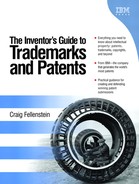The History of Inventions
An invention has three distinct characteristics. These are
Solution. An invention must solve a specific problem using an idea that those skilled in the art have not yet considered, which is subjective and the basis for many legal challenges to an invention.
Novelty. The solution to the specific problem must be novel.
The first patents were granted during the Renaissance period in Italy. Venice granted ten-year patents on silk making devices as far back as the 1200s.
Britain has the oldest formal patent system. During the fifteenth century, the government granted patents to specific persons or groups. The earliest known English patent was given to Flemish-born John of Utynam in 1449 for a method of making stained glass that had not previously been used in England. To receive a patent was to receive a favor from the ruling monarch. In exchange for Utynam's patent, he was to teach craftsmen in England his method. The practice of teaching others and passing on information continues today as part of the patent process (see Chapter 4, “Invention Teams”).
A patent in the fifteenth century was different than a patent today. The word “patent” originally came from the Latin “litterae patentes,” meaning open letter. Patents during the Middle Ages were literally letters stamped with the king's seal of approval. They were left open so that anyone could come and read them and see or challenge their validity. This was the state of Utynam's patent. The state of being of a simple, literal letter has changed drastically since that time, but the meaning also has changed.
During the fifteenth century, receiving a patent also meant that the person received royal consent for a monopoly on that product. (A monopoly is when a group has exclusive control over certain manufactured goods or services.) This was a problem because merchants were granted patents for common products that were already in existence such as soap, glass, iron, and paper.
